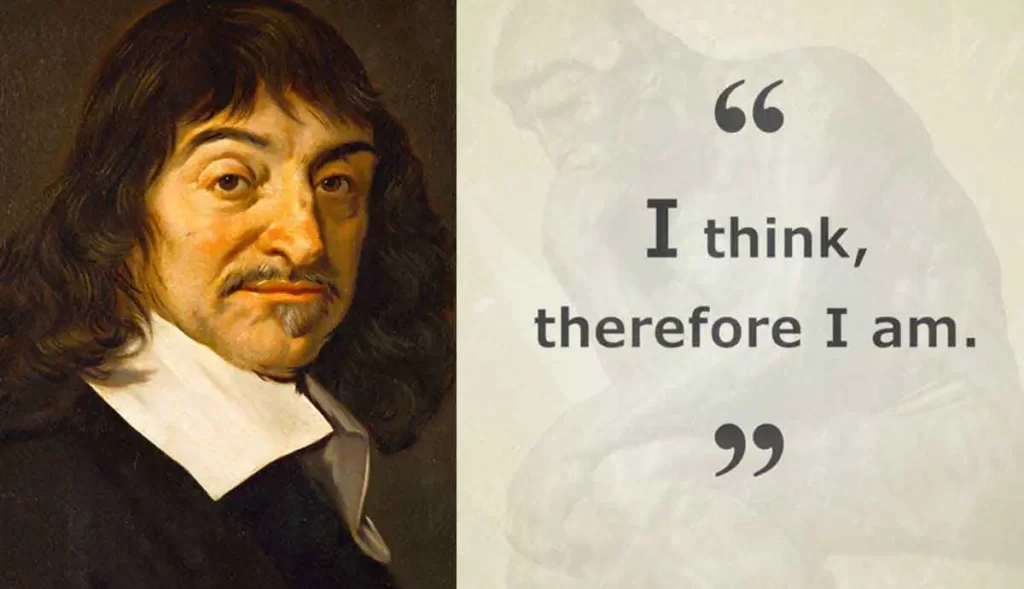You have probably heard the phrase “I think, therefore I am” (Latin: cogito, ergo sum) at some point in your life. You may have heard this from a wise old man, movie, or TV show. The phrase was coined by the French philosopher René Descartes in his 1637 book Discourse on the Method. It is a statement of his belief that the only thing he can know for certain is that he exists, because he is the one who is doing the thinking.
I Think, Therefore I Am
Descartes arrived at this conclusion through a process of radical doubt, in which he questioned everything he believed to be true. He argued that if he could doubt something, then it could not be certain. He eventually realized that he could not doubt the fact that he was thinking, because even if he was wrong about everything else, he would still have to exist in order to be wrong. He invented the idea of dualism of mind and matter. This philosophy means that a mind can exist without a body, though a body can’t exist without a mind.

The phrase “I think, therefore I am” has been interpreted in many different ways. Some people see it as a statement of the importance of human reason, while others see it as a more existentialist statement about the individual’s search for meaning. Regardless of how it is interpreted, the phrase remains one of the most famous and influential statements in Western philosophy. Here’s a quote from Descartes’ Discourse on the Method where he explains the meaning of the phrase:
“I think, therefore I am. That is, I exist; for certainly, it ought to be granted that I am something, since I am doubting; but I do not yet know clearly what I am, and that is what I now seek.”






